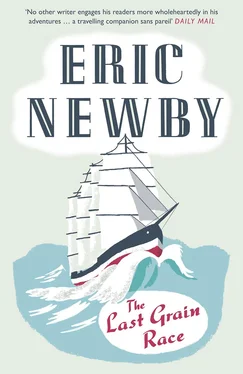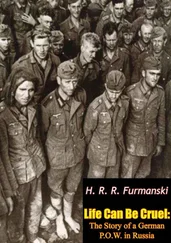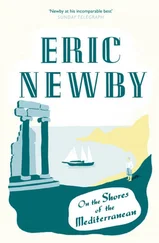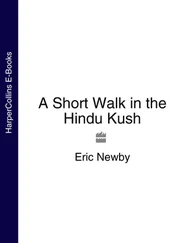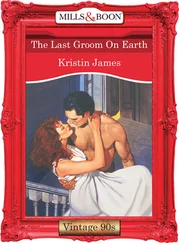I learned some of these things from a little white-haired man, who said that to make the voyage at all I must be bound apprentice and pay a premium of fifty pounds. He made no suggestions except that I would probably be better advised not to go at all. I left Bishopsgate with a form of indenture which among other provisions stipulated that my parents were to bind me to the owner for eighteen months or a round voyage; that if I deserted the ship in any foreign port my premium would be forfeited; that if I died or became incapacitated, a pro-rata repayment of premium could be claimed; that I should receive 120 Fin-marks (10s) a month, and that I should be subject to Finnish law and custom.
This document my father reluctantly signed after hopelessly trying to discover something about Finnish law and custom. I remember that he was particularly concerned to find out whether the death penalty was still enforced and in what manner it was carried out. Even more reluctantly he paid out £50 and sent off the Indentures with two doctors’ certificates attesting that I was robust enough for the voyage, and one from a clergyman which stated that I was of good moral character. By this time I began to feel that I was destined for Roedean rather than the fo’c’sle of a barque.
During this time Mr Mountstewart had not been inactive. For him the balloon had gone up, this was what he had been waiting for. In the language of his generation it was ‘Der Tag’. With memories of long periods of inactivity in the skysail yarder, he had got into touch with an acquaintance of his, a fashionable ship’s chandler, whose interest lay principally in the fitting out of yachts in the Solent and the Hamble River. Between them they had drawn up a formidable list of books on navigation and seamanship which I would peruse under the direction of the Master. This was a heaven-sent opportunity for Mr Mountstewart’s friend, and he was not backward in loading me with his wares, which included a particularly repellent kind of sea-water soap. I staggered from his showrooms to a taxi with a great pile of logarithm tables, nautical almanacs and seaman’s manuals, all slightly shop-soiled. He had tried to persuade me that I needed a sextant but a premonitory and for once accurate voice told me that where I was going I might find difficulty in living it down.
His conscience had not allowed him to recommend his ‘yachting’ brand of oilskins and clothing, and he had sent me off to the East India Dock Road where I might obtain more suitable garments than his own, which were no doubt excellent for the purpose for which they were designed. Perhaps he knew more than I imagined about sailing ships and feared that I might return after the voyage to accuse him of selling oilskins that split.
When the manager of the store in the East India Dock Road heard who had sent me and what I was proposing to do, he decided to give me his personal attention. He was far grander and more sure of himself than the neighbourhood in which the outfitters was situated would have led me to expect. The complete outfitting of a hundred shipwrecked lascars would have been nothing to him. I was a smallish order and he proposed to deal with me accordingly. He swept me down the staircase to the basement past rails of hideous shore-going suits. ‘Now, sir,’ he said, taking a deep and well-practised breath, ‘you will be wanting pilot coat heavy trousers two suits working clothes heavy underwear heavy seaboots long oilskin coat oilskin trousers sea-boot stockings stormcap knife and spike, mattress straw.’
It was a hot September day. I put on the long thick vest and underpants; like all their counterparts in England they were supported mysteriously by a number of tapes which once tied in a knot could never be undone but had to be severed. Over these foundation garments I put layers of unseasonable clothing: thick navy working shirts and trousers of itchy cloth, a seaman’s jersey, stockings and seaboots. Over these went the oilskin coat and trousers, the latter insecurely supported by a single cord. On my head was the storm cap. Even this was disappointing: it was made of patent leather trimmed with imitation Astrakhan. There were flaps that let down over the ears or could be tied up on top of the hat like a deerstalker. Everything was unnecessarily ugly.
The manager was delighted at my transformation. ‘Now, sir,’ he said briskly, ‘if you would like to move about a little…’ I walked a few feet to get what he called ‘the feel’ of the things and the waterproof trousers fell down.
‘You will also require a trunk,’ said the manager. At this moment one of his assistants wheeled one in. It was the sort of trunk that stingy murderers use for the disposal of their victims; covered with bright yellow fabric and fitted with imitation brass locks, it gave off a gluey smell and was sticky to the touch.
I was sweating profusely, unhappy to be looking so ridiculous and miserable about the trunk.
‘I want a wooden sea-chest, not a trunk. That thing will fall to pieces if it gets wet.’
The manager smirked. He was accustomed to this kind of complaint. ‘The sea-chest is a thing of the past,’ he said, ‘are you expecting the fo’c’sle to be filled with water?’
‘As a matter of fact, I am.’
‘In that case,’ he replied rather stiffly, ‘you will no doubt want to take your own precautions. We will wrap these in brown paper.’
On the way back to Hammersmith, from the top of a bus I saw a magnificent trunk in the window of a shop that disposed of railway lost property. The trunk in the East India Dock Road had been an octavo trunk; this was a folio and the next day when I went to see it, I found that it even opened like a book. One side contained numbers of drawers intended for shoes and the other a big space for hanging clothes. It was blacker and grander than I had imagined. A small ticket said: ‘This trunk by Louis Vuitton for sale’, and underneath, more despairingly, ‘Must be disposed of’. I bought it for four pounds, and put my shore-going clothes and my pilot jacket, of which at the time I was inordinately proud, in the space once filled with Paquin dresses. Its small white label, Louis Vuitton. Paris. Nice. Vichy , with its false promise of more gracious living supported me through periods of homesickness and depression.
At about this time occurred the Business with the Caribou Skin Sleeping-bag. It took up a great deal of time that I could have spent more profitably in eating. One of my chief sources of information about life in sailing ships was Basil Lubbock’s Round the Horn Before the Mast . Lubbock, a tall, tough Etonian, had taken part in the gold rush to the Yukon; returning from the Gold Fields in 1899, he had shipped out of ’Frisco in an iron barque and worked his passage home before the mast. Among his possessions was a Caribou sleeping-bag for which he had given a pair of 12 lb. blankets ‘to a man who was camped alongside me at Lake Bennett, on the way into the Klondyke’. He described it as having been made in Newfoundland by the Indians from two caribou skins sewn together with the sinews of the animals. The following passage convinced me that I too must have a caribou skin sleeping-bag.
‘How delightful and cosy I felt turning into my sleeping-bag in the first watch, better far than a dozen blankets. Off the Horn the air is so moist that once one’s blankets are damp they never get dry again; besides which the iron side of the half-deck sweats awfully, and drops on to everything. But when everybody and everything else was wet off the Horn I would crawl into my bag, my underclothes wet, my socks dripping, I did not take them off as the only chance to get them dry was by the heat of my body, and in turning out again I would find my clothes dry, and my feet smoking hot, notwithstanding the wet socks.’
Читать дальше
